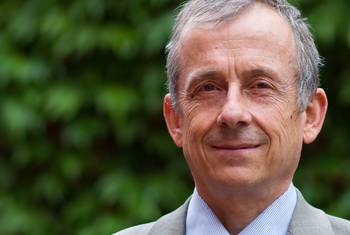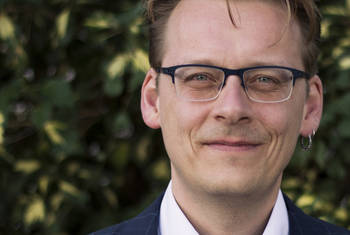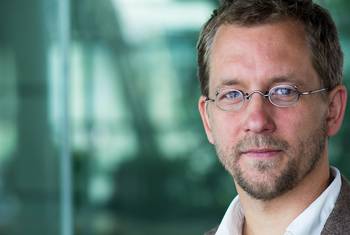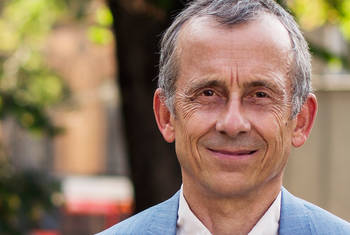Chris Hann Is There Actually a Continental Divide Between Europe and Asia?
Chris Hann is Founding Director of the Max Planck Institute for Social Anthropology in Halle, Germany, as well as Professor of Social Anthropology at the University of Oslo, Norway. Furthermore, he is an Honorary Professor of Social Anthropology at the University of Kent at Canterbury, the University of Leipzig as well as the Martin-Luther-University, Halle Wittenberg. Hann’s main areas of interest include economic organization, property relations, and religion. In geographic terms, he has been focusing this research on the areas of rural Hungary and Poland, Turkey and Yinjiang.
Area of Research
Economic Organization, Religion, Civil Society, Ethnicity and Nationalism
since 2013
Professor of Social Anthropology
University of Oslo
since 2012
Spokesman
International Max Planck Research School for the Anthropology, Archaeology and History of Eurasia (ANARCHIE)
since 1999
1992-1999
Professor of Social Anthropology
University of Kent at Canterbury
1984-1992
Assistant Lecturer, then Lecturer in Social Anthropology
University of Cambridge
Fellow of Corpus Christi College and Director of Studies in Social and Political Sciences and Social Anthropology
1980-1984
Research Fellow
Corpus Christi College, Cambridge
1979-1980
Language Editor
New Hungarian Quarterly, Budapest
1974-1979
Social Science Research Council Studentship
University of Cambridge
Subsumes in 1975-1977: Two Years of Fieldwork in Hungary, Supported by British Council Exchange Scholarship
1979
PhD
University of Cambridge
Thesis "The Socio-Economic Structure of a Community on the Great Hungarian Plain"
1974
Bachelor in Politics, Philosophy and Economics
University of Oxford
- Association of Social Anthropologists
- British Association for Slavonic and East European Studies
- European Association of Social Anthropologists
- German Anthropological Association
- Polish Sociological Association
- Royal Anthropological Institute
Prizes
- Royal Anthropological Institute, Rivers Memorial Medal (2015)
- Royal Anthropological Institute, Curl Prize Essay (1991)
Fellowships
- Fellow, Institut d’Études Avancées, Nantes (2013-2014)
- Ordentliches Mitglied, Berlin-Brandenburg Akademie der Wissenschaften (since 2008)
- Fellow of the World Academy of Rusyn Culture (since 2007)
- Honorary Member of the Hungarian Ethnological Society (since 2005)
- Honorary Professor, Martin-Luther-University, Halle-Wittenberg (since 2000)
- Honorary Professor, University of Leipzig (since 2000)
- Honorary Professor, University of Kent at Canterbury (since 1999)
- Fellow, Wissenschaftskolleg zu Berlin (1997-1999)
- British Council Hungarian Exchange Scholarship (1975-1977)
- Lazard Scholarship, Corpus Christi College, Cambridge (1975)
- SSRC Postgraduate Studentships (1974-1975 and 1977-1979)
- Welsh Foundation Scholarship, Jesus College, Oxford (1971-1974)
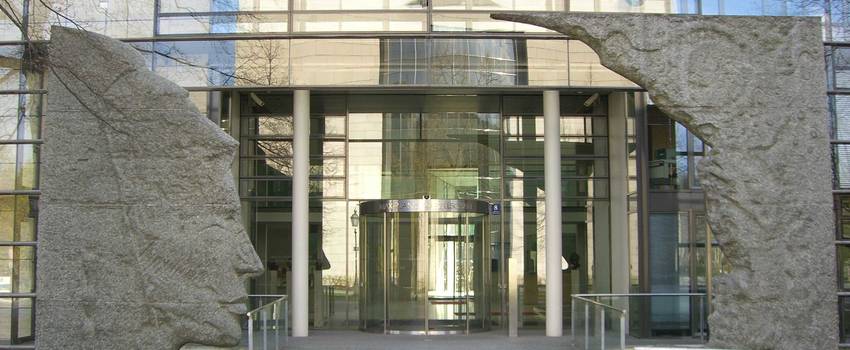 © Maximilian Dörrbecker
© Maximilian Dörrbecker
Max Planck Society
"The Max Planck Society is Germany's most successful research organization. Since its establishment in 1948, no fewer than 18 Nobel laureates have emerged from the ranks of its scientists, putting it on a par with the best and most prestigious research institutions worldwide. The more than 15,000 publications each year in internationally renowned scientific journals are proof of the outstanding research work conducted at Max Planck Institutes – and many of those articles are among the most-cited publications in the relevant field." (Source)
Institute
Max Planck Institute for Social Anthropology
"The Max Planck Institute for Social Anthropology is one of the world’s leading centres for research in socio-cultural anthropology. It was established in 1999 by Chris Hann and Günther Schlee, and moved to its permanent buildings on Advokatenweg 36 in Halle/Saale in 2001. Marie-Claire Foblets joined the Institute as its third Director in 2012. Common to all research projects at the Max Planck Institute is the comparative analysis of social change; it is primarily in this domain that its researchers contribute to anthropological theory, though many programmes also have applied significance and political topicality. Fieldwork is an essential part of almost all projects. More than 175 researchers work at the Institute, the great majority in one of its three Departments: ‘Law & Anthropology’ (Foblets); ‘Resilience and Transformation in Eurasia’ (Hann); ‘Integration and Conflict’ (Schlee). The Institute’s Library, the Research Coordination Unit, the IT Department and administrative staff assist the researchers in their work. The Institute has its own Guesthouse, and organises regular seminars and international conferences. It cooperates closely with anthropologists and other colleagues at the Martin Luther University, Halle-Wittenberg, and at the University of Leipzig" (Source)
Map
When studying human social and cultural diversity, there are usually distinctions being made based on world regions. This leads commonly to the assumption that there is a continental divide between Europe and Asia. However, researchers from many disciplines point out that Eurasia should rather be seen as a unity. In the comparative anthropological study CHRIS HANN presents in this video, he found commonalities across the Eurasian landmass at the level of values that can be traced back over centuries and distinguish it from other parts of the world – in particular from the settler societies of North America. It is argued that this value consensus was promoted by cultural exchanges between East and West that took place along the Silk Road and across the Indian Ocean over thousands of years of Eurasian history.
LT Video Publication DOI: https://doi.org/10.21036/LTPUB10255
A Concept of Eurasia
- Chris Hann
- Current Anthropology
- Published in 2016


